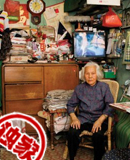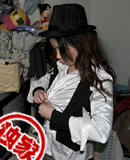职称英语考前专项训练:词汇阅读及补全短文
训练内容:词汇选项+阅读理解+补全短文
训练要求:
一、词汇选项:
下面共有15个句子,每个句子中均有1个词或短语划有底横线,请从每个句子后面所给的4个选项中选择1个与划线部分意义最相近的词或短语。答案一律涂在答题卡相应的位置上。
1 She was a puzzle
A girl B woman C problem D mystery
2 Her speciality is heart surgery。
A region B site C field D platform
3 France has kept intimate links with its former African territories。
A friendly B private C strong D secret
4 You should have blended the butter with the sugar thoroughly
A spread B mixed C beaten D covered
5 The industrial revolution modified the whole structure of English society,
A destroyed B broke C smashed D changed
6 Tickets are limited and will be allocated to those who apply first。
A posted B sent C given D handed
7 The change in that village was miraculous。
A conservative B amazing C insignificant D unforgettable
8 Customers often defer payment for as long as possible
A make B demand C postpone D obtain
9 Canada will prohibit smoking in all offices later this year。
A ban B remove C eliminate D expel
10 She read a poem which depicts the splendor of the sunset。
A declares B asserts C describes D announces
11 From my standpoint, this thing is just ridiculous
A field B point of view C knowledge D information
12 The latest census is encouraging
A statement B assessment C evaluation D count
13 The curious looks from the strangers around her made her feel uneasy
A different B proud C uncomfortable D unconscious
14 Reading the job ad, he wondered whether he was eligible to apply for it。
A able B fortunate C qualified D competent
15 He was elevated to the post of prime minister。
A pulled B promoted C lifted D treated
A
二、阅读理解
Is the Tie a Necessity?
Ties, or neckties, have been a symbol of politeness and elegance in Britain for centuries. But the casual Prime Minister Tony Blair has problems with them. Reports suggest that even the civil servants may stop wearing ties. So, are the famously formal British really going to abandon the neckties?
Maybe. Last week, the UK's Cabinet Secretary Andrew Turnbull openly welcomed a tieless era. He hinted that civil servants would soon be tree of the costliest 12 inches of fabric that most men ever buy in their lives。
In fact, Blair showed this attitude when he had his first guests to a cocktail party. Many of them were celebrities (知名人士) without ties, which would have been unimaginable even in the recent past。
For some more conservative British, the tie is a must for proper appearance. Earlier, Labor leader Jim Callaghan said he would have died rather than have his children seen in public without a tie. For people like Callaghan, the tile was a sign of being complete, of showing respect. Men were supposed to wear a tie when going to church, to work in the office, to a party - almost every social occasion。
But today, people have begun to accept a casual style even for formal occasions。
The origin of the tie is tricky. It started as something called simply a "band". The term could mean anything around a man's neck. It appeared in finer ways in the 1630s. Frenchmen showed a love of this particular fashion statement. Their neckwear (颈饰)impressed Charles II, the king of England who was exiled(流放)to France at that time. When he returned to England in 1660, he brought this new fashion item along with him。
It wasn't, however, until the late 18th century that fancy young men introduced a more colorful, flowing piece of cloth that eventually became known as the tie. Then, clubs military institutions and schools began to use colored and patterned ties to indicate the wearer's membership in the late 19th century. After that, the tie became a necessary item of clothing for British gentlemen。
But now, even gentlemen are getting tired of ties. Anyway, the day feels a bit easier when you wake up without having to decide which tie suits you and your mood。
31 The tie symbolizes all of the following except
A respect
B elegance
C politeness
D democracy
32 Why does Blair sometimes show up in a formal event without a tie?
A Because he wants to make a show,
B Because he wants to attract attention。
C Because ties are costly。
D Because he wants to live in a casual way。
33 Which of the following is NOT a social occasion?
A Going to church。
B Going to work in the office。
C Staying at home。
D Going to a party。
34 Who brought the Frenchmen's neckwear to Britain?
A Tony Blair。
B Charles ll。
C Jim Callaghan。
D Andrew Turnbull。
35 When did British gentlemen begin to wear ties regularly?
A After the late 19th century。
B In the 1630s。
C In 1660.
D In the late 18th century。
三、补全短文
下面的短文有5处空白,短文后有6个句子,其中5个取自短文,请根据短文内容将其分别放回原有位置,以恢复文章原貌。
Mind Those Manners on the Subway
So, there you are, just sitting there in the subway car, enjoying that book you just bought (46) Or, the person sitting next to you takes out a nail clipper (指甲3) and begins cutting his or her nails。
Annoying? Many of us have to spend some time every day on public transportation (47) So, to make the trip more pleasant, we suggest the following:
Let passengers get off the bus or subway car before you can get on (48)
Stand away from the doors when they are closing
Don't talk loudly on a bus or subway. Chatting loudly with your friends can be annoying to others. (49)
Don't think your bags and suitcases (手提箱) deserve a seat of their own。
Use a tissue whenever you cough or sneeze (打喷嚏). An uncovered sneeze can spread germs (细菌), especially in crowded places。
Don't cut your nails or pick your nose on public transportation。
Don't read over other people's shoulder (50) It can make people uncomfortable. They might think you're too stingy (小气的) even to buy a newspaper. Or they might think you're judging their behavior
A Don't shout into your mobile phone on a bus or subway。
B We all know that some behaviors are simply unacceptable
C Many people do this on subways, but it's really annoying
D Getting off and on in an orderly manner can save time for al
E Suddenly, you feel someone leaning over your shoulder reading along with you。
F Don't eat food in your car
本期参考答案:
词汇选项
DCABD CBCAC BDCCB
阅读理解
31 D 32 D 33 C 34 B 35 A
补全短文
46 E 47 B 48 49 A 50 C
特别说明:由于各方面情况的不断调整与变化,新浪网所提供的所有考试信息仅供参考,敬请考生以权威部门公布的正式信息为准。
网友评论
更多关于 职称英语 的新闻
- 职称英语考前必看系列一:选词典及查词技巧2010-02-26 15:49:26
- 2010职称英语考前30天突破 教材技巧两手抓2010-02-24 11:33:02
- 视频:职称英语阅读判断高分攻略2010-02-09 15:13:57
- 名师指导:2010年职称英语寒假期间巧备考2010-02-05 14:13:57
- 2010年职称英语教材调整变化分析2010-02-04 10:38:24
- 2010年职称英语新增文章目录2010-02-04 10:36:25
- 职称英语考前60天 考试通关三步走2010-01-29 14:41:02
- 名师指导:职称英语考前冲刺及应试技巧2010-01-28 10:09:34






